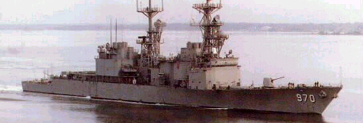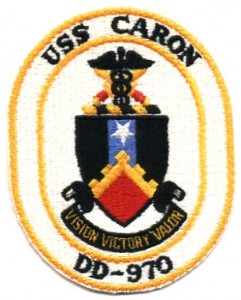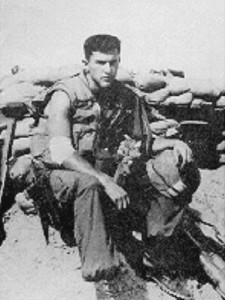
By Roy Malone
It was by far the most difficult inspection in the Navy, and by far the one that had the most consequence on my career as a Combat Systems Officer (CSO).
The Navy will not allow you to have the capability to carry and deploy special weapons on your ship unless you have a “perfect” program in place to take care and safeguard them. The inspection is called the Nuclear Weapons Assessment Inspection, and it is a big, big deal if you are a CSO. You absolutely must pass. Failing to pass this inspection can seriously stunt your career, and may well cost you your job.
The name of the ship was the USS Caron, and as the CSO, I was responsible for the weapons systems. We had other inspections, a lot of other inspections, and we were working under the added pressure of an accelerated deployment timeline. Normally you get a year from when the ship comes out of the yard before it goes to sea to get all your certifications in place. We only had nine months because we were gearing up for deployment in support of what would eventually become Desert Storm.
Because the certification exam is so rigorous, the Navy has created a pre-certification review team to help ships and their CSOs get ready for the inspection. A Nuclear Weapons Assist Team (NWAT) comes aboard and does a preliminary review of the program. NWAT consists of 2 or 3 senior chief petty officers, very high-level, knowledgeable guys who have been doing this all their careers. They’ve seen all the different programs on other ships and know what to look for, know what the problems are, know what you should improve, and they can really go in and help you in areas you’re weak in. If you were to pick an expert, these guys are the experts.

The USS Caron was the eighth of a thirty-one SPRUANCE Class Destroyer program. It was launched on June 23, 1975.
NWAT’s job is to help you identify your shortcomings so you can prepare for the final certification inspection. Actually, there are two final-ons. The first is the Technical Assist Visit (TAV) in which another Navy review team looks at your program and gives you a list of discrepancies. The people who do the TAV are the same ones who do the second final-on, the inspection for certification. NWAT is not involved in the certification inspection; they just help you to get ready for it, and they are worth their weight in gold.
In most cases, the NWAT team comes aboard, conducts their assist visits, identifies discrepancies and then leaves. In my case, I had them come back a bunch of times. This is not something I instigated as if the opportunity wasn’t available. During the assist visit, they offered to come back if desired and help us with any of our issues. So I called.
On each successive visit, they helped us find additional things we needed to improve on. We worked it so that on each visit, they focused on a particular area of the program and scrutinized it in detail with us. What it allowed my team to do in a series of 10-15 visits was to hone my program so that it was as close to perfect as possible. Most ships don’t take advantage of having them come back for other visits. I don’t know why that is. Maybe some feel it’s an embarrassment to acknowledge your program has shortcomings. I never took any criticism from my captain for inviting them to come back several times. The stakes are too high. My feeling was it’s better to pass the inspection with pride than fail because of it.

The USS Caron was named in honor of HM3 Wayne M. Caron of Middleboro, MA. He was posthumously awarded the Medal of Honor for conspicuous gallantry during combat operations in Vietnam.
In the follow-up visits, the NWAT guys came on board and sometimes spent the whole day with us. During their visits they looked at all of our processes. A good example is our training program. They looked at who had been trained, who was the trainer, what kind of training it was, who had certified the trainer, etc. Then they looked into our other processes and made sure they met standard requirements. They’d run drills to see how people performed if anything was broken — or in the event of an accident to a special weapon, you have to know exactly what to do, whom to call, how to respond. Then they do a security alert in which your security is breached, and the many scenarios that go with that.
It was an exhaustive analysis. Each time they would find things for us to hone and improve on. We’d fix those and the next time they’d look at something else and find more things. This was exactly what we wanted because it allowed us to hone that area.
Did they mind coming so many times? Are you kidding, they loved it. They wished more ships invited them back as many times as we did. This was a chance for them to roll up their sleeves and get into the nuts and bolts of the program, and that’s what these guys lived for.
Finally, when the TAV team came for the pre-inspection, we did so well that the assist visit was turned into a certification visit and the ship was certified on the spot. We were the first ship in 10 years on the Norfolk waterfront to be certified during the assist visit.
When managing processes that deal with special weapons, your programs have to be ready. Like NASA operations, this is one of those areas where there is no room for error. That’s why even if you think you don’t have time, you make time for the NWAT guys or, in the case of NASA, experienced project managers who are willing to help. There were more experienced CSOs than me whose ships had trouble getting certified. They didn’t take advantage of this resource that was available to them. I was successful in large part because I did.
Lesson
|
Search by lesson to find more on:
- Reviews






